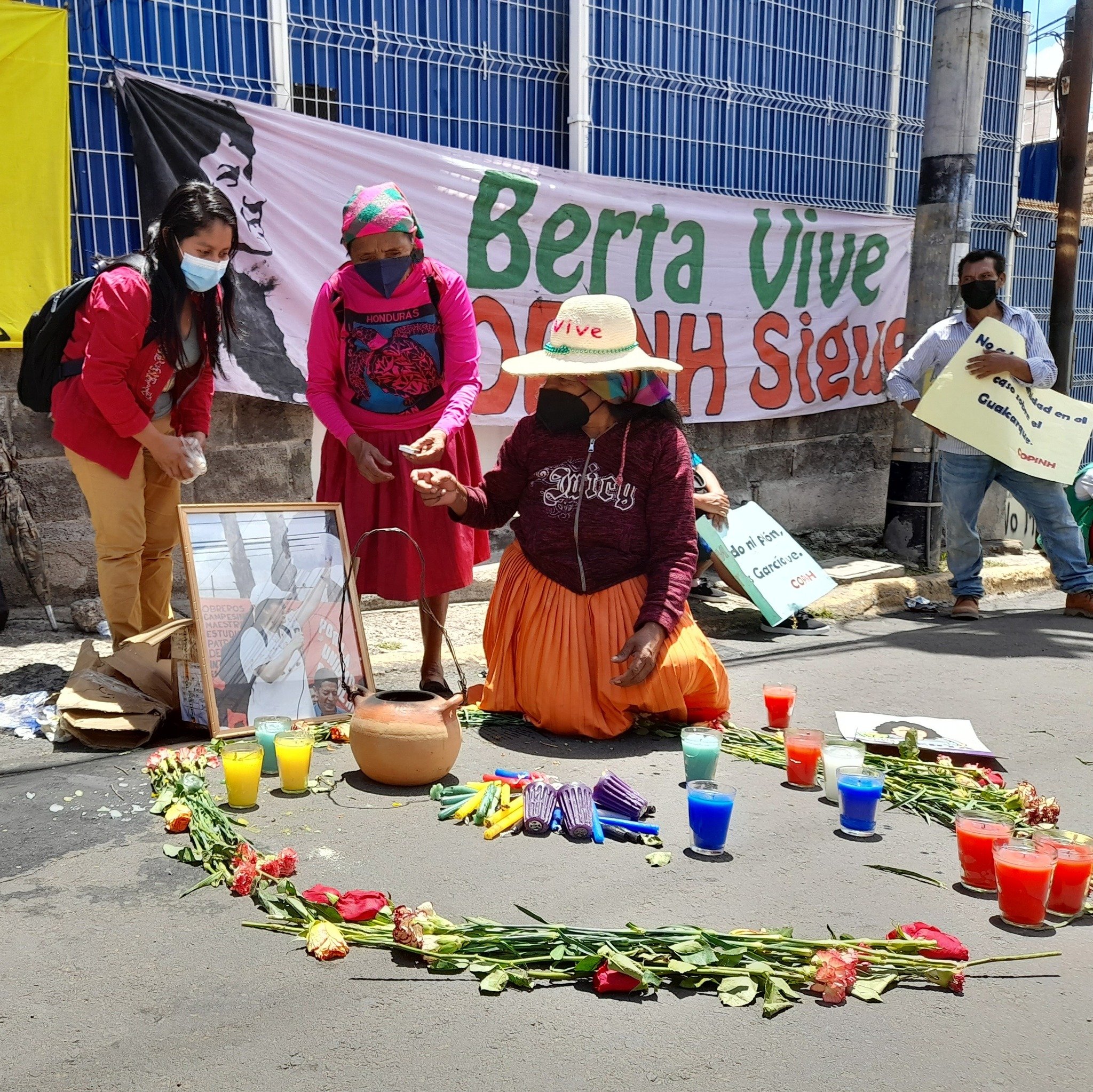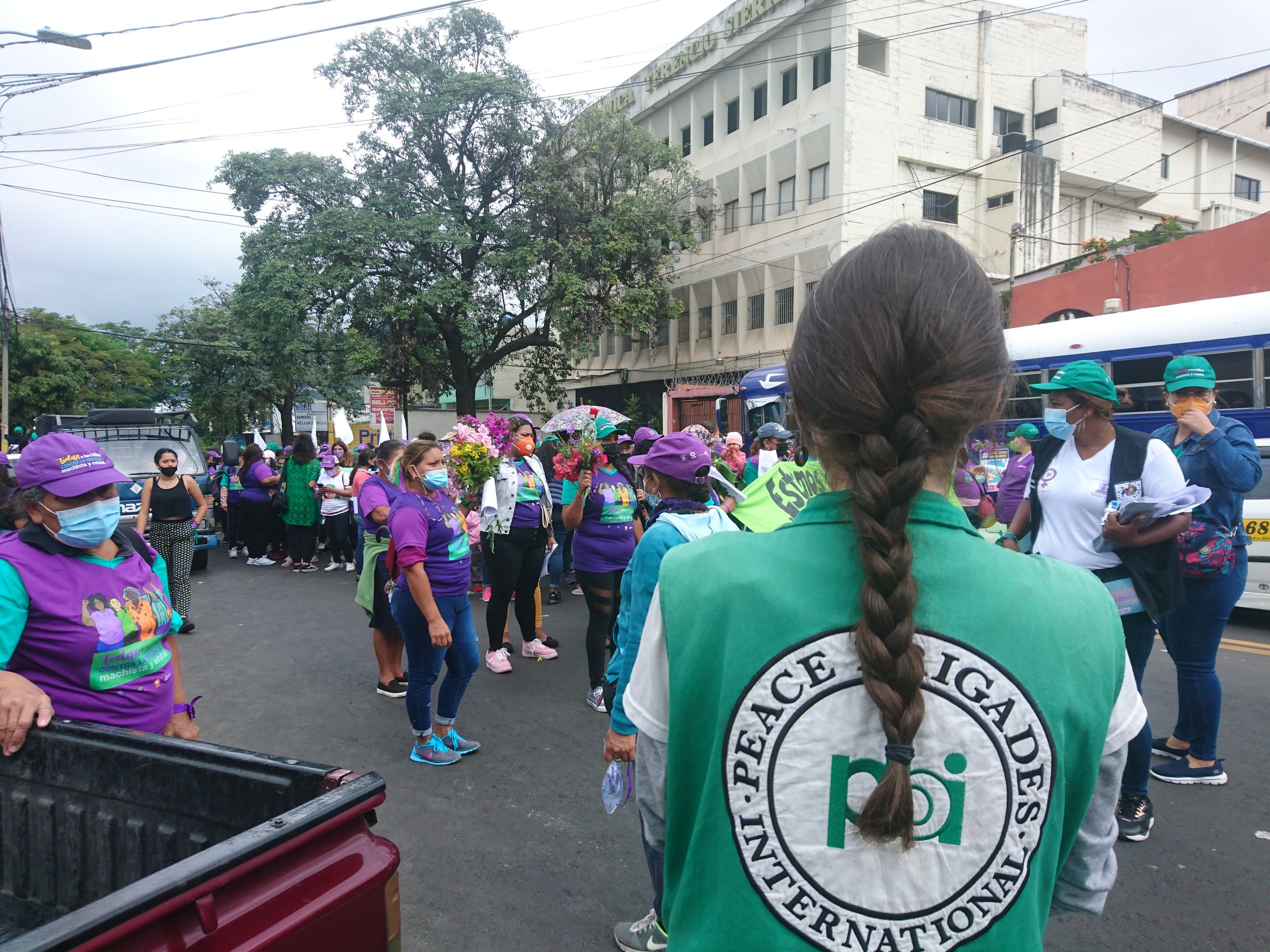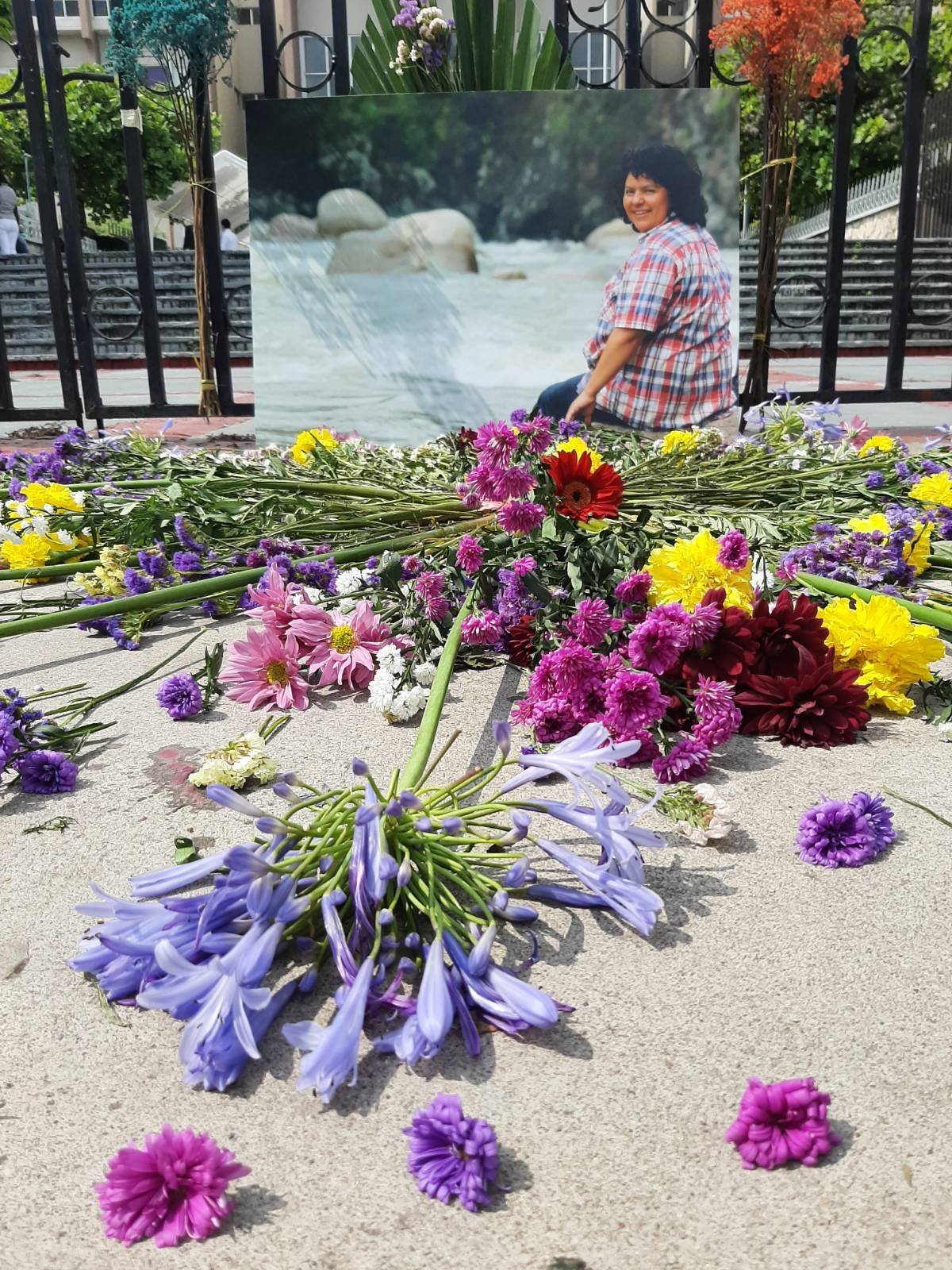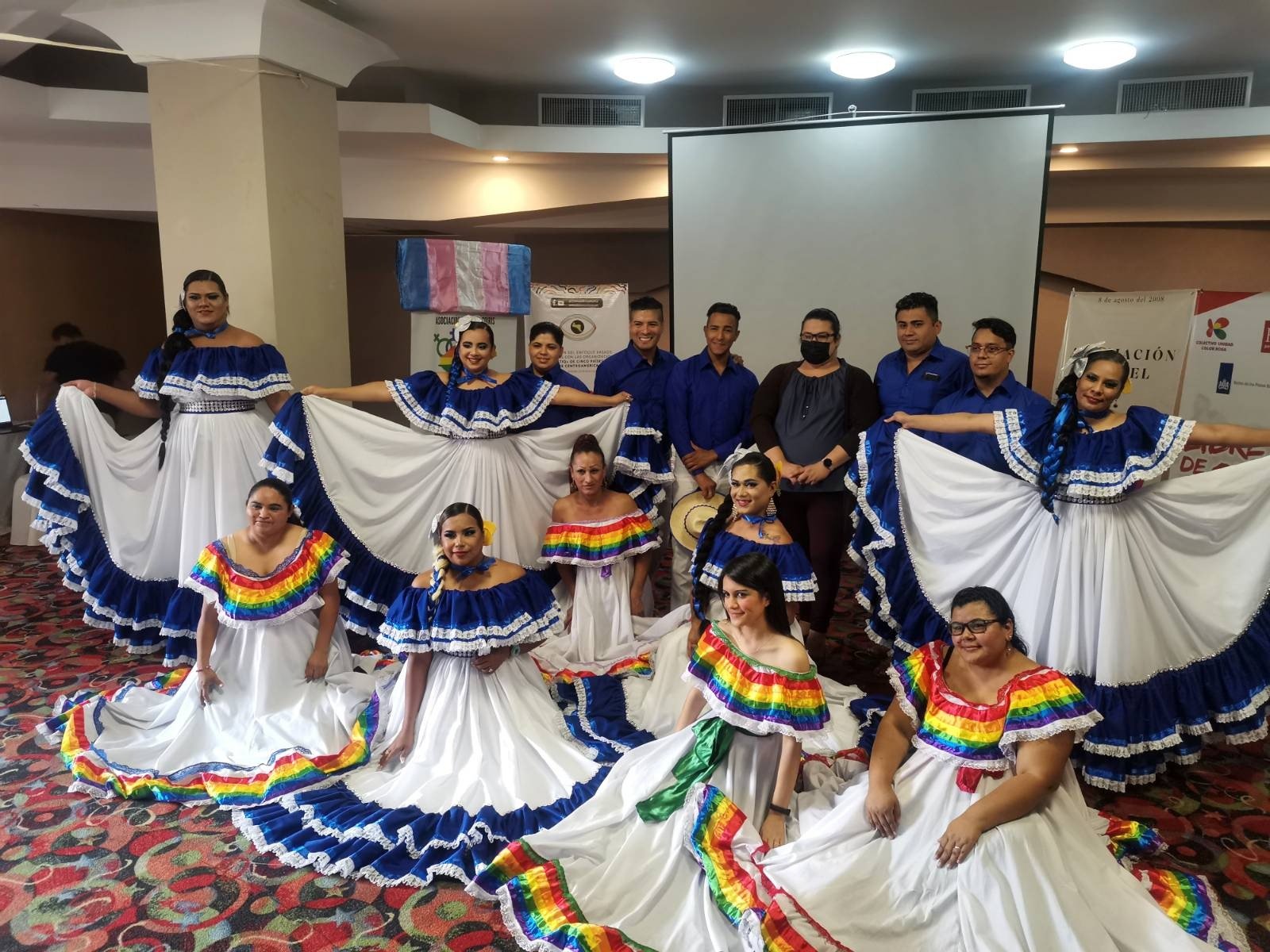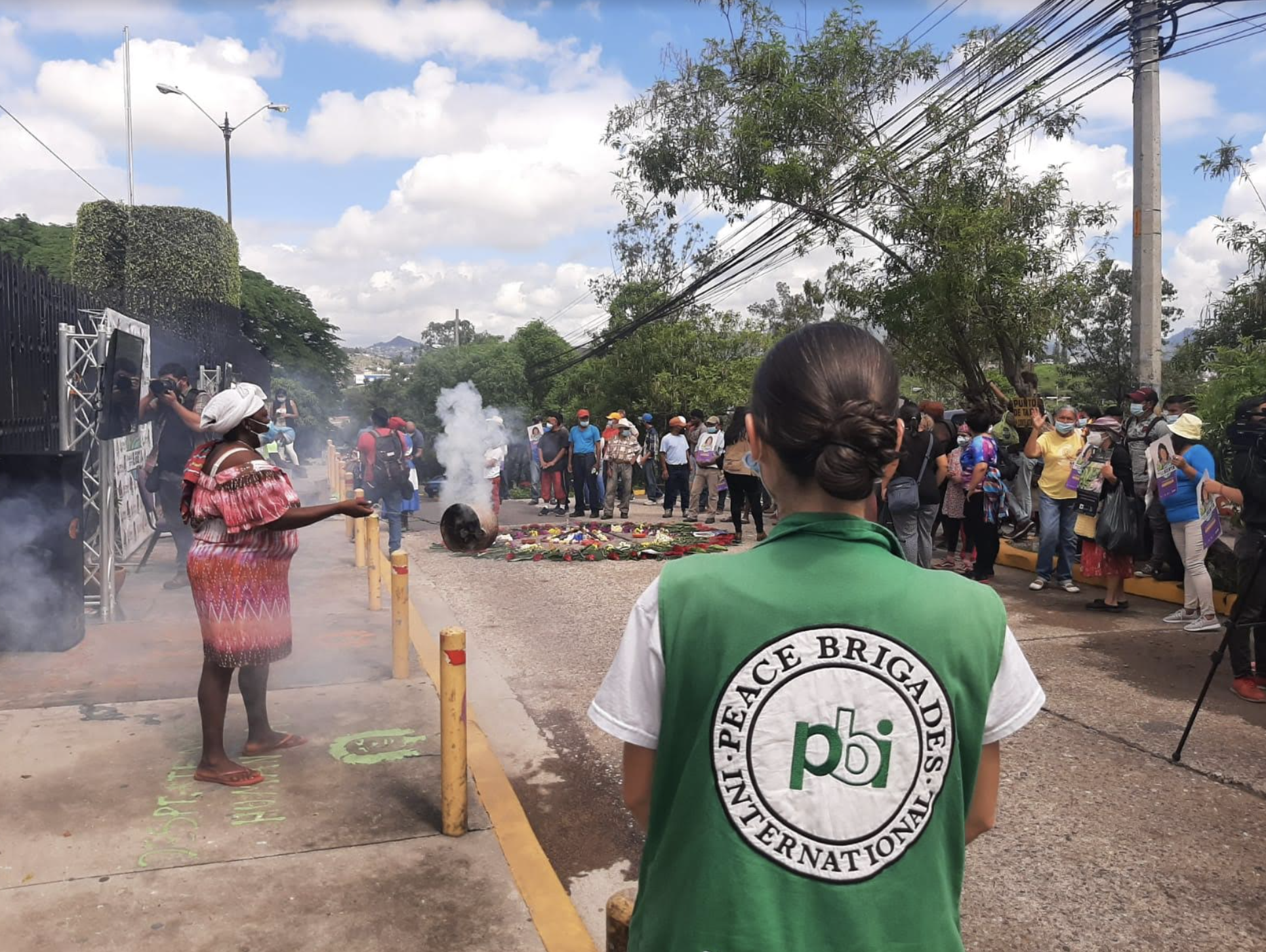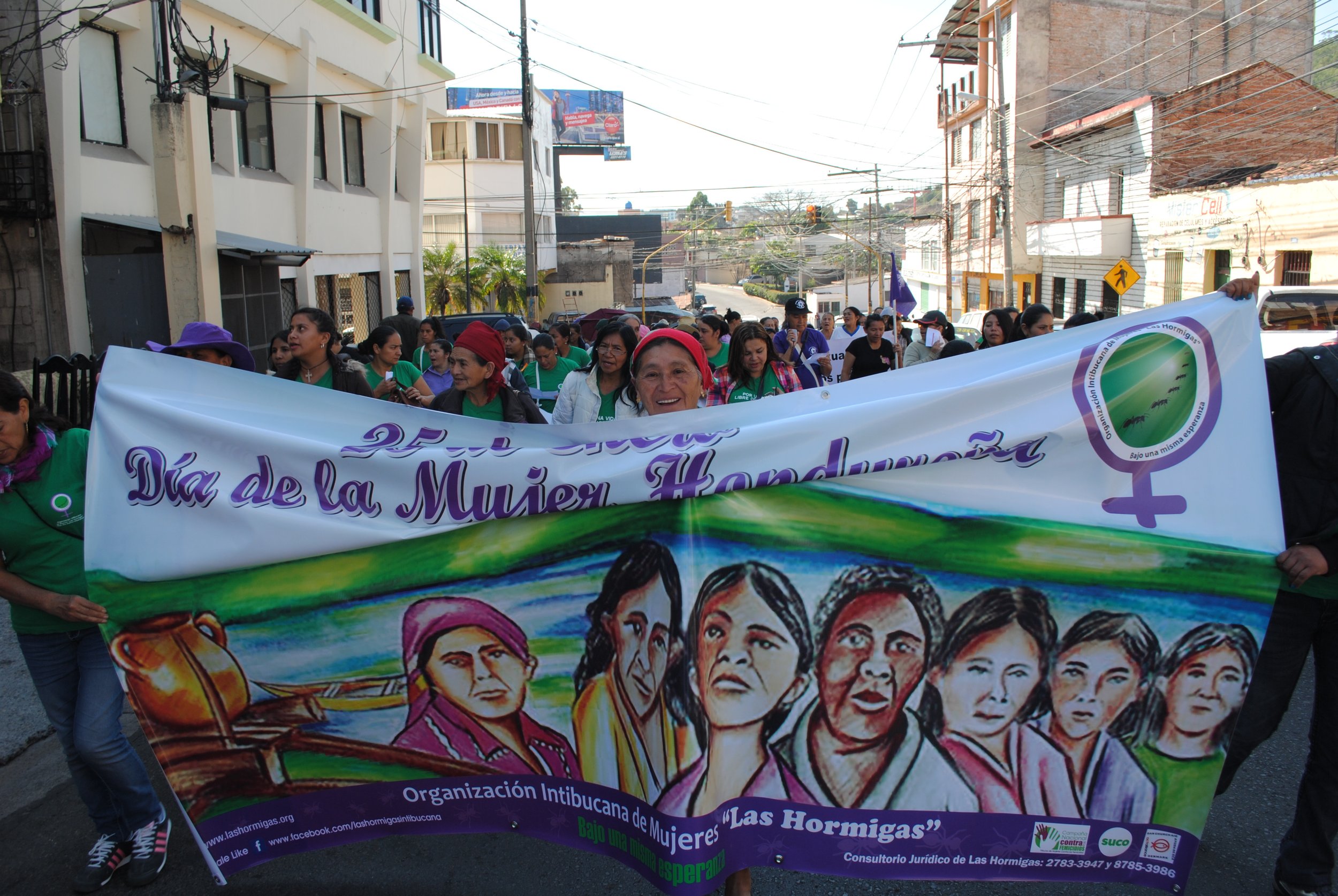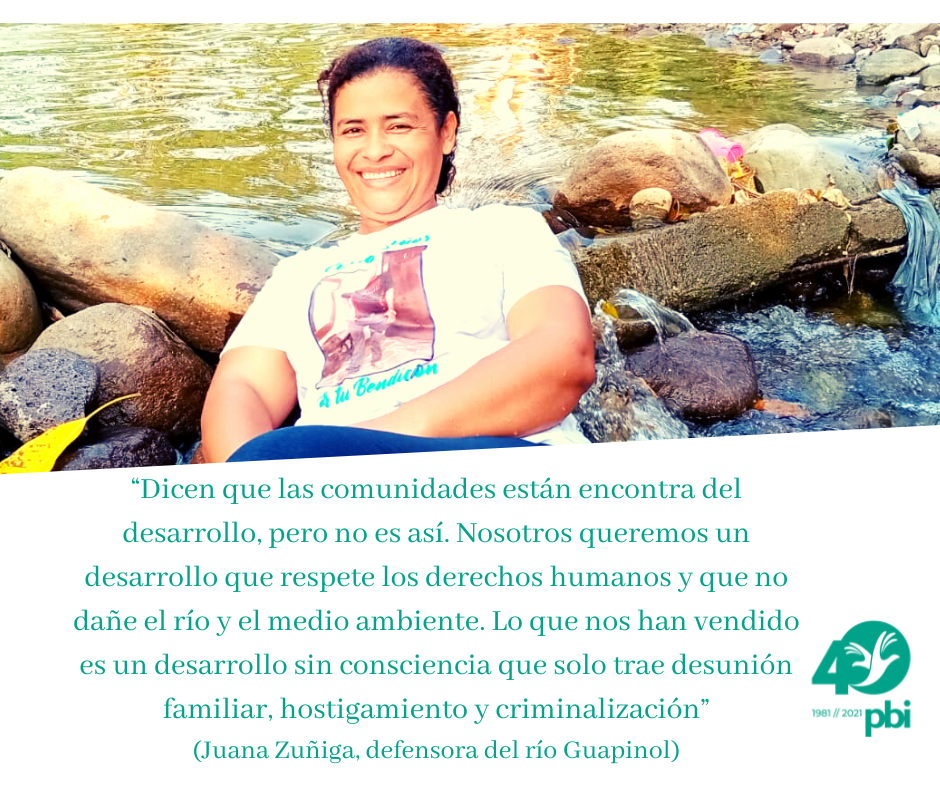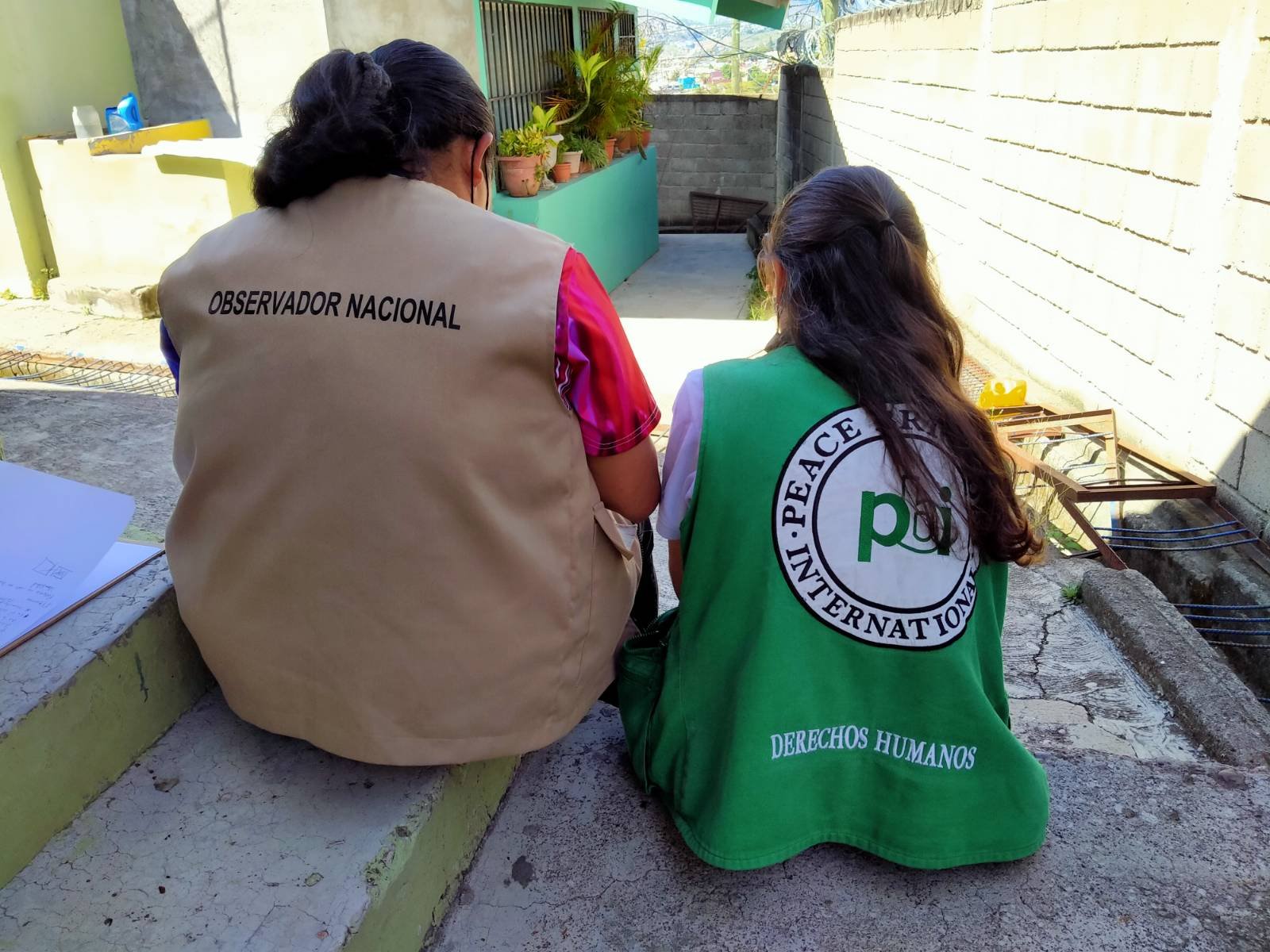Accompanying the women human rights defenders transforming Honduras
A description of what volunteering with PBI looks like and the learnings from the experience.
By Roslynn Beighton
I first heard about PBI whilst studying a human rights Latin America program in London and was instantly attracted by the vision of walking towards a lasting peace alongside the activists who risk their lives for a better world for all of us.
After undertaking an internship with PBI UK and learning about the dynamics of the organisation, I decided to apply to be a field volunteer. I chose Honduras because I had a previous connection with the people, having spent time with many nationals whilst volunteering in migrant shelters in Mexico. I created the site Ser mujer, ser migrante to document testimonies of displaced women from the region – an overwhelming majority from Honduras – who expressed to me the need for international solidarity with those seeking respect for their rights in their country.
The most meaningful aspect of my time as a PBI field volunteer was having the opportunity to accompany women human rights defenders (WHRDs) and learn first-hand about their role in peace building and social transformation. PBI Honduras’ intersectional and gender perspective aims to recognize and visibilise the work WHRDs carry out in perilous contexts where they face gender-specific risks such as sexual violence, defamation, criminalisation, burnout, intimidation, hostility, harassment, physical assault and death. WHRDs across the world are challenging the historical marginalisation and exclusion of women by building collaborative movements which break down structural inequalities. I would like to highlight the work of several WHRDs and movements I had the honor of accompanying and their vital role as change makers in Honduran society.
The trans women defenders standing up against hate crimes
In an interview with J-Lo Córdoba, coordinator of the MUÑECAS de Arcoiris trans women’s group, she described to me why she left Honduras as a child: “Exclusion, poverty, familial abuse, discrimination in our neighbourhood, feeling like I was different… hearing people saying that they did not want ‘sissies’ in the family… All of this just made me think of leaving Honduras when I was 15 years old”.
J-Lo returned to Honduras and became a pioneer of MUÑECAS in 2015 and a leading figure in pride marches, press conferences and public declarations remonstrating the government’s responsibility in transfemicide. Alongside dedicated campaigners from Arcoiris, she also advocated for legal change through the Gender and Equity Law.
As a PBI volunteer, I gained an understanding of the struggles these women face on a daily basis. Discrimination and violence are regular occurances for people who identify as LGBTQI+ in Honduras, particularly trans women. There have been over 120 recorded murders of trans women over the past decade, and their life expectancy is less than 35 years, according to data from the Cattrachas Lesbian Network.
During an accompaniment following the election in November 2021, J-Lo and her fellow MUÑECAS told PBI volunteers how they had been ridiculed and harassed while waiting in line at one of the polling stations. At one point, a group of young men had thrown rubbish at them. I will never forget attending the funeral of trans activist Thalía Rodriguez, shot to death earlier this year and deeply mourned by the LGBTQI+ community for her tireless work fighting for trans rights. Equally, I will never forget seeing J-Lo and her compañeras share their creativity at a colourful folklore competition, showing the world their resolute desire to contribute to society and live a life of dignity.
The power of women in community battles against extractive projects
Another grassroots movement which has grown thanks to the work of WHRDs is Freedom for the Guapinol water defenders. For several months, I followed the trial of the eight imprisoned environmentalists, observing the twists and turns of the case from the courtroom, accompanying the community in the campamento outside, and visiting the families affected in their own communities across the spectacular but deadly valley of the Bajo Aguán. Listening to the experiences of women peacefully resisting the threat of an iron oxide mine contaminating local rivers, I am struck by their sheer determination to uphold environmental and community values. I observed how hard women worked. “Behind the scenes” they prepared food for groups of supporters day and night, organised camp activities and spiritual sessions, and contacted supportive organisations. Simultaneously they were on the “front lines”, marching in protest against corruption, speaking out at press conferences, and raising awareness nationally and internationally about the injustice of the case.
The bravery and commitment of relatives and community members during the imprisonment of their loved ones was unwavering. Wives, mothers, sisters and daughters of the detained did not cease in their campaign for justice, led by WHRDs Juana Zúniga (partner of accused defender José Abelino Cedillo), and Juana Esquivel, renowned activist from the Municipal Committee for the Defense of Common and Public Goods of Tocoa. This determination, coupled with the work of the defence team – in particular lawyer Kenia Oliva who has been targeted due to her human rights work – led to international recognition of the case. The Honduran government was eventually pressured to release the defenders and uphold its legal pledge to human rights and environmental protection laws due to their work.
Legendary Indigenous and afro-descendant WHRDs
One of the first accompaniments I carried out with the PBI team was visiting the Campamento Feminista Viva Berta! during the trial of David Castillo, declared guilty of orchestrating the murder of legendary Lenca leader Berta Cáceres six years prior. I remember the verdict vividly, watching as the Garifuna women jumped and danced at the victory everyone at the camp had prayed for. It was a historic day, where some small justice was served after half a century of colonial repression of indigenous peoples. It was inspiring to see the extraordinary work that had gone into the creation and maintenance of the camp, settled by hundreds demanding justice for Berta.
The women of IM Defensoras led the organisation of the camp, providing activities for children, a planting project, concerts, spiritual offerings and sharing meals. They also hosted speeches by COPINH members including Berta’s daughters Laura and Bertita, the Vice President of the Lenca Indigenous Council of Río Blanco Rosalina Domínguez, the beloved spiritual guide Pascualita, as well as the Afro descendant defender of Garifuna peoples Miriam Miranda, among others.
All of this evidenced the fundamental role of women in uniting communities to denounce the extractive industries which have invaded indigenous and Afro-descendant territories with genocidal threats to their populations and way of life. They continue the legacy of women who have dared to go against the patriarchal exploitative model imposed on Honduras since colonial times and especially in the aftermath of the 2009 coup in order to secure their peoples’ rights and a sustainable future for the natural world.
I was honoured and inspired to accompany these and other WHRDs struggling to build a more just, peaceful and inclusive Honduras, including:
Albertina López and María Dolores of the Movimiento Amplio por la Dignidad y la Justicia (MADJ) movement and their organization’s work denouncing company INGELSA which imposed a hydropower project in Jilamito.
María Felicita López of the indigenous Movimiento Independiente Indígena Lenca de la Paz Honduras (MILPAH) and her stand for indigenous women’s rights and against illegal concessions for hydroelectric dams.
The women’s collective of Nueva Esperanza – part of the Centro Nacional de Trabajadores del Campo (CNTC) fighting land inequity.
Dina Meza, a renowned journalist and defender of the right to freedom of expression for 30+ years.
Christina Alvarado and the women of Women for Peace Visitación Padilla working to eliminate femicide and violence against women and girls.
Become a PBI Volunteer and support WHRDs shaping the future!
The Honduran government has become the first in the region to be represented by a woman president. There is great potential to shift the human rights landscape and this potential can be found in the mobilisations across the country fuelled by Honduran women.
PBI volunteers in Honduras support women activists from diverse movements and stand in solidarity with human rights defenders transforming society from the grassroots. You can find out more about PBI and how to become a field volunteer here!



